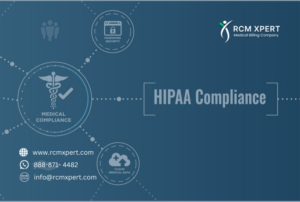Rheumatology practice encompasses a wide array of services, dealing with autoimmune diseases and musculoskeletal disorders that often require ongoing, personalized treatments. This specialization necessitates an equally specialized approach to billing and coding – enter rheumatology billing services.
Expert billing services not only ensure that healthcare providers are reimbursed accurately and promptly for the care they deliver but also significantly alleviate the administrative burden.
With the right rheumatology billing services partner, practices can navigate the complexities of medical coding, compliance, and reimbursement with ease, ensuring financial health and stability for their practice.
Rheumatology Practices: Adapting to a Changing World
Rheumatology practice is at a crossroads, facing both exciting advancements and daunting challenges. As rheumatology practices evolve, they must navigate a landscape marked by an increasing patient load, complex health regulations, and the pressing need for efficiency.
Adapting to these changes is not just about survival; it’s about thriving by leveraging opportunities to enhance patient care and optimize financial performance.
- Responding to a Surge in Demand
The surge in chronic inflammatory conditions is putting unprecedented demand on rheumatology services. With conditions like rheumatoid arthritis and lupus on the rise, the need for specialized rheumatology care has never been higher.
This growing patient base presents both an opportunity and a challenge for rheumatology practices, pushing them to scale up their operations while maintaining the high standard of care their patients depend on.
- Financial Hurdles in Modern Healthcare
Today’s rheumatology practices face a labyrinth of financial challenges, from navigating the complexities of insurance billing to dealing with the ever-present specter of claim denials. These financial pressures are exacerbated by the rising costs of healthcare, making effective financial management a critical component of a practice’s success.
The ability to efficiently manage the revenue cycle has become a vital skill for rheumatologists, ensuring the financial health of their practice in an increasingly complicated healthcare environment.
- Streamlining for Success
In the fast-paced world of healthcare, operational efficiency is key to both exceptional patient care and financial viability. Rheumatology practices must streamline their processes, from patient intake to billing, to thrive.
By doing so, they not only improve the patient experience but also enhance their practice’s profitability. Embracing technological solutions and specialized billing services can play a significant role in achieving this balance, allowing rheumatologists to focus on what they do best: caring for their patients.
The Importance of Accurate Medical Billing
Accurate rheumatology billing services stand as a cornerstone for the growth and sustainability of rheumatology practices. It’s not just about getting paid; it’s about ensuring the financial stability and operational efficiency that allow practices to thrive in today’s healthcare landscape.
Ensuring Full Compensation through Precise Coding
- Proper coding is not merely a regulatory requirement; it’s a strategic tool for maximizing reimbursement.
- By accurately coding for the wide range of services provided, rheumatology practices can ensure they receive the full compensation due for their specialized care.
- This precision supports financial growth and allows for further investment in patient care and practice development.
Mitigating Financial Setbacks with Fewer Claim Denials
- Claim denials are not just administrative hurdles; they represent a significant financial risk to practices.
- Accurate and detailed coding plays a crucial role in reducing the likelihood of denials.
- By minimizing these disruptions, practices can maintain a steadier cash flow, reducing the financial strain caused by denied claims and the need for resubmissions.
Streamlining Cash Flow for Enhanced Revenue Cycle Efficiency
- Efficient billing practices are the engine of a smooth revenue cycle.
- By ensuring timely and accurate billing, rheumatology practices can speed up reimbursements, enhancing their cash flow.
- This efficiency is critical for maintaining operational liquidity, allowing practices to manage expenses effectively and invest in opportunities for growth.
Understanding Your Rheumatology Patients’ Needs
In the specialized field of rheumatology, understanding and meeting patient needs goes beyond the clinic and extends into the realm of billing and administrative support. Rheumatology billing services play a critical role in this equation, serving as a bridge between the clinical care patients receive and the complex world of healthcare financing.
With the unique challenges that come with billing for rheumatology services, it’s essential that practices employ a nuanced approach. Billings rheumatology experts are tasked not just with navigating the maze of codes and regulations but with ensuring that patients can access the care they need without undue financial burden.
Rheumatology medical billing, therefore, becomes a pivotal aspect of patient care, reflecting the practice’s commitment to patient support.
By prioritizing accurate and patient-friendly billing practices, rheumatology providers can enhance patient satisfaction and trust, ultimately contributing to better health outcomes and a stronger practice-patient relationship.
Enhancing Growth through Medical Billing Efficiency
Optimizing the medical billing process is a crucial step for rheumatology practices aiming to enhance their growth and financial stability. By focusing on accurate medical coding and investing in robust billing systems, practices can navigate the complexities of rheumatology billing services more efficiently.
This not only ensures accurate reimbursement but also streamlines the entire billing workflow, setting the stage for a more profitable and patient-centric operation.
Detailing Laterality and Causation: Accurate coding in a rheumatology practice requires a deep understanding of laterality (left, right, bilateral) and causation, ensuring that claims accurately reflect the specific conditions treated.
Highlighting Anatomic Location: The precise identification of anatomic locations is critical, as it directly impacts the specificity of diagnoses and subsequent treatments, enhancing claim accuracy and reimbursement.
Efficient Management of Codes and Claims: A reliable medical billing system allows for the streamlined management of complex rheumatology codes, simplifying the claims process and reducing denials.
Robust Denial Management Features: Investing in a system with strong denial management capabilities can significantly mitigate financial losses, allowing practices to quickly address and rectify claim issues.
Automating Routine Tasks: By automating tasks such as patient billing and claim submissions, practices can reduce manual errors and free up staff to focus on patient care.
Integrated Analytics for Financial Health: Utilizing a billing system with integrated analytics helps practices monitor their financial performance in real-time, identifying trends and making informed decisions to improve profitability.
Conclusion
The journey towards optimizing your rheumatology practice’s growth and efficiency is significantly enhanced by the right partners and tools. RCM Xpert stands out as a beacon for rheumatology practices seeking to navigate the complexities of medical billing with precision and ease. With their comprehensive rheumatology billing services, RCM Xpert offers a solution that not only simplifies the billing process but also aligns with your practice’s financial and operational goals.





